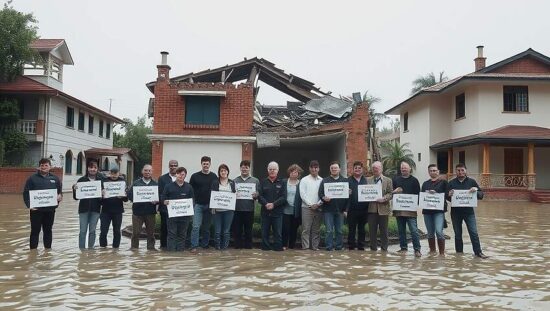A recent study by the Ifo Institute has revealed that there is a higher level of societal acceptance for a mandatory basic disaster insurance in Germany than previously thought. The study, published on Monday, suggests that many households are willing to contribute to a solidarity insurance system, even if they may not directly benefit from it.
According to Ifo expert Marie-Theres von Schickfus, “Primarily for the sake of fairness, many households are ready to participate in a solidarity insurance system, even if they may not directly benefit from it.”
The study found that nearly half of the households (39% in favor, 34% neutral) supported a mandatory insurance without receiving specific information about it. This number increased when households were provided with targeted information about the actual amount of state aid – up to 80% of the damages caused by the flood were publicly compensated. The effect was particularly strong among households that were not previously insured in regions with low flood risk. Here, the population showed a new attitude towards a general mandatory insurance, which was perceived as fairer and more socially cost-effective than ad hoc state aid.
“Households increasingly recognize that a privately organized mandatory insurance is not only economically efficient but also fairer” said Ifo researcher von Schickfus. “This opens up room for political reordering of disaster prevention.”
The 2021 flood disaster caused damages worth over 40 billion euros – only about half of the residential buildings were insured at the time. This highlighted the inadequate financial preparation for climate-related damages. To explore public opinion on this issue, the researchers surveyed over 8,000 households and 639 companies about their expectations of state aid and their attitudes towards a mandatory insurance.
“In times of increasing extreme weather risks, a mandatory insurance system could be a sensible step towards a preventive protection against the consequences of climate change and could alleviate state budgets” said Karen Pittel, head of the Ifo Center for Energy, Climate and Resources. “However, stronger consideration of climate risks in investment decisions requires adequate pricing of local risks in insurance premiums.” She also believes that an open discussion about state and private adaptation measures in the context of climate change is necessary.





